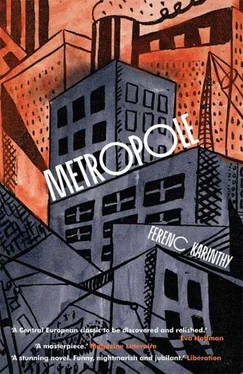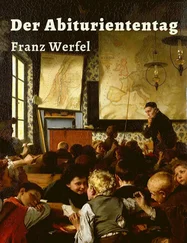What to do? No local body, certainly not the hotel administration, would be likely to know that he had arrived here by mistake, quite unintentionally, otherwise they would have done something by now, returned his passport and so forth… The passport was another mystery: it was quite incomprehensible why they should have kept it or where they were keeping it since it was normal practice everywhere else to return it once the formalities of registration were over. And where had the grey-haired desk-clerk got to, the one who had taken his passport from him, and whom he had not seen since? Who should he hold responsible? From whom should he request his airline ticket and passport, and to whom should he explain all this and in what language and how? Even now he shuddered to think of the painful events of yesterday morning, of his pointless, idiotic gesturing — and yet he couldn’t just leave it like that. How long was he going to spend hanging about here, in a place that had nothing to do with him, on the ninth floor of a strange hotel in a strange city?
He tried to consider methodically where he might turn for help. To the management? To the information desk? To an interpreter, a travel agent, the airline? These ideas passed before him but how was he to locate any of these agencies? Who was there to ask in the dreadful whirl of traffic where no one had the time to address his problems but left him muttering idiotically to himself? They must speak other languages in banks and financial institutions and, possibly, in various public offices, but where to find such places, how to identify them among the mass of buildings, when he couldn’t make the slightest sense of the notices on them? What if he sought out a foreign embassy, his own or some other country’s? How would he find it and recognise it? Would it be flying the flag at the entrance? He must keep his eyes peeled: surely, if he explored the city systematically, examining everything he passed, continually on the alert, it would be impossible not to discover one. And above all, here in the hotel itself, in such an enormous international establishment, it was unimaginable that he should not eventually meet someone with whom he could talk. The point was not to drift. He had to overcome his natural reticence and awkwardness, to shake himself free of his mental lassitude and extricate himself from this whole dumb episode.
His first thought was to jot everything down in his note-book — he never went anywhere without one in case he had some bright idea on his travels. He should write a brief account, in English, of what had happened to him, where he came from, where he wanted to go and so on, and then add a note requesting the management to act promptly, to help him smoothly on his way or provide him with someone to whom he might explain the situation. He wrote the note and signed it, adding his name and the figures 921, much as a prisoner might give his number, laughing as he did so. He then translated the same text into French and Russian. Once he had handed these in at the desk it stood to reason, plain as the nose on his face, that somebody would understand one of these texts and take the necessary steps.
At the same time he thought he’d try the telephone again and dialled what he thought might be public lines, such as began with 0, 00, 01, 02, 11, 111, 09, 99 and the like, but there was no answer from any of them except, occasionally, a rapid pulsing sound. He was growing furious. Why was there no telephone book in the room? It was the thing that most annoyed him right now and he kept wildly clicking at the phone, tugging at it angrily, slamming the receiver down, bellowing fierce hellos and finally throwing the set down so forcefully it was lucky it didn’t break. He had to get a list of names from somewhere. He quickly put on his shoes, calmed himself and dashed out.
His aim was to shortcut the queue and slip his key to the desk clerk as before, but though they took his key, he was pushed out of the way by the crowd before he could hand over his piece of paper and was directed to the back of the queue. So once again he had to stand patiently in line until he reached the desk again and passed the clerk his note written in three languages. The man blinked, turned the piece of paper over and over in his hand, examined his own files, and gabbled something that sounded like a question, but Budai did not stay to listen to him, preferring to disappear into the crowd.
He looked this way and that in the lobby, searching for a public telephone. There wasn’t one anywhere, at least he could not find one, though it seemed to him that he had passed one that morning. He went out into the street again where the traffic was as busy as before, sweeping him this way and that so he had to struggle against it, and there it was, albeit a block further off than he had remembered. There really was a phone booth there but it was occupied of course with a tidy queue in front of it. He felt there was no point in waiting for his turn especially because he saw that the list of codes fixed to the wall was long and that the directories themselves were numerous and thick so there was no chance of him removing them with so many people around. He refused to admit defeat though and wandered on looking for another booth as if locating a telephone directory was the most important thing in the world. He took the stairs down into the metro again, and he was right: it was as he remembered, a dozen or so booths lined one of the walls of the station, all of them occupied, the long snaking queues blending with the general crowd. Here too he felt that it was hopeless waiting, but since he was here he determined to study the map he had discovered that morning a little more closely. He ended up not much wiser than he had then, though he did at least establish the name and location of the station and even copied its name and draw its position in his notebook, writing down the characters just outside the little red circle so that he should be able to find his way back to it from anywhere, should he get lost.
Upstairs meanwhile the sky was growing darker and the street lights had come on. It was about this time that the bus had brought him here. That must mean he had spent an entire twenty-four hours in the place. But that was not the most important thing on his mind as he pressed anxiously ahead: he had learned by now to shove, to struggle and carve out a path among the tides of others, like all the rest… The skyscraper was still rising and there were as many men working under floodlights as there had been during the day. He spotted another diner a little further on, one he had not entered yet, so he peeked through the door. It was a self-service establishment with customers taking ready-prepared dishes from various stands and it was only after having done so that they queued up at the cash desk with their tray. Budai was delighted. The crowd was no worse than elsewhere. This was the first time he had come across something that struck him as a vaguely pleasant surprise so he went straight in. He collected a large range of food: soup, stuffed eggs, a roast with trimmings, some cheese and a slice of gateau — how, after all, did he know when he would be able to have a decent meal again? — and poured himself a small coffee from a machine for good measure. He passed over a handful of change to the woman at the till so she could take the necessary amount, then sat down at the nearest counter and ate it all up. There it was again, that same peculiar sweet taste, as if both meat and egg had been flavoured with sugar.
Near the diner he discovered an unexpectedly empty telephone booth. There was a paper notice stuck to the glass probably to the effect that the phone was out of order but the door could be opened and there were those thick directories in rows, in steel clasps, chained to the wall. He set to work examining them, working out how he could unscrew them, and was fiddling at the screws with his penknife when he noticed that he was being observed by a man in a grey uniform. He wore a short coat and flat cap, a white truncheon hanging from his belt. A policeman, no doubt. Budai remembered that he had no documents with him and that it would be pointless trying to explain what he as doing. He leafed through the book from front to back and vice versa pretending to look for a number or address. The policeman did not move but stood relaxed, steadily observing him. Then Budai had another thought. He stepped out of the booth and went straight over to the policeman. He tried speaking to him in German, English, Italian and several other languages, but was so flustered that he couldn’t remember what information it was that he sought: how to get where, whether to an embassy or a tourist office, even what kind of help he needed. Whatever he said the policeman nodded and jabbed at him with his finger:
Читать дальше












